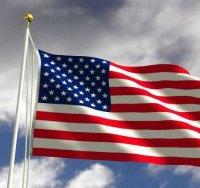Border battles enflame Pakistan-Afghan tensions, threaten United States-led anti-terror war
Raging violence along the rugged Pakistan-Afghan border has sent relations between the two countries to new lows and underscored U.S. difficulties in containing a troubled region crucial to winning the war on terror.

The tensions are placing increasing pressure on Pakistani President Pervez Musharraf, a U.S. counterterror ally who has been forced to defend his government against claims by Afghan President Hamid Karzai that Pakistan hasn't been doing enough to stem the flow of militants into Afghanistan .
"If the violence in Afghanistan escalates in the spring, then I think we are going to see this relationship become even more tense," said Samina Ahmed, an Islamabad-based expert with the International Crisis Group. "And Pakistanis are really concerned about how this affects their relations with the Americans."
Marine Gen. Peter Pace, chairman of the U.S. Joint Chiefs of Staff, met Pakistani officials in Islamabad on Monday and Tuesday and discussed terrorist incursions into Afghanistan , a senior U.S. defense official said on condition of anonymity because the talks were private. His visit followed one earlier in the month by Gen. John Abizaid, chief of the U.S. Central Command.
More than four years after the U.S.-led invasion of Afghanistan , an intensifying campaign of bombings, including 30 suicide attacks since the fall, have targeted foreign troops, Afghan security forces and local authorities. Afghan officials claim the attackers operate out of Pakistan .
In addition, insecurity only appears to be growing along the mountainous border, where Osama bin Laden and other al-Qaida and Taliban leaders are believed to be hiding. In the past month, Pakistani forces have fought several battles with pro-Taliban militants in the tribal region of North Waziristan , leaving scores of soldiers and many more suspected militants dead.
On Tuesday, Afghan security forces killed at least 15 people who a local security commander claimed were Taliban rebels who had crossed from Pakistan .
But Pakistan officials denied the victims were Taliban members, while Afghan residents of the Kandahar provincial town of Spin Boldak , where the bodies were found, said they were tribesmen killed as part of a feud. Kandahar 's governor has launched a probe into the slayings.
Such disputes have raised serious doubts about whether the two governments can work together to fight Islamic militants, let alone track down bin Laden and his associates.
"What the U.S. is trying to do is encourage Afghanistan and Pakistan to have the best possible relationship," said Teresita Schaffer, director of the South Asia program at the Washington-based Center for Strategic and International Studies. "But it seems that President Bush hadn't realized the sensitive nature of Pakistan-Afghan relations."
Both Afghanistan and Pakistan became top U.S. allies in the war on terror after the 2001 invasion that ousted Afghanistan 's Taliban regime. But the two countries have never shaken off mutual distrust over Pakistan 's former support of the Taliban.
Last month, Karzai presented Pakistan with locations of alleged terrorist training camps and a list of extremists his government says are at large inside Pakistan .
When Afghan officials then leaked details of the intelligence, Musharraf was outraged. He accused Karzai in a televised interview of providing outdated information and not doing enough to stop militants entering Pakistan in the first place.
"With Karzai and Musharraf going at it, nobody can back down without losing face," said Patrick Cronin, an Asia-U.S. expert for the Center for Strategic and International Studies. "It is important these disagreements be dealt with at lower levels. Their own survival is at stake and these countries are at the front line of the struggle against terror."
Afghan and U.S. officials acknowledge that Musharraf has been trying to contain militants in the lawless border regions. But the Bush administration is also urging Pakistan to do more.
Diplomatic pressure on Musharraf could grow as NATO expands its peacekeeping operation into southern Afghanistan , bringing the forces of more nations under threat of attack, reports the AP.
D.M.
Subscribe to Pravda.Ru Telegram channel, Facebook, RSS!


